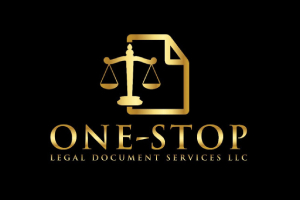Immigration Ineffective Assistance of Counsel: Understanding Legal Standards and Authorities
When it comes to immigration law, receiving effective legal representation can be crucial. However, when an attorney fails to provide effective representation, it can result in significant consequences for individuals facing deportation or removal. In this blog post, we’ll discuss the legal standards and authorities that come into play when it comes to ineffective assistance of counsel in immigration law.
What is Ineffective Assistance of Counsel in Immigration Law?
Ineffective assistance of counsel occurs when an attorney’s actions or inactions result in harm to their client. In the context of immigration law, this can take many forms such as:
1. Failing to provide accurate or complete information about the law or procedures.
2. Failing to file necessary paperwork or applications on time.
3. Failing to investigate or present evidence that could benefit their client.
4. Failing to appear at critical court or immigration hearings.
5. Advising their client to take actions that could result in deportation or removal.
Legal Standards and Authorities
To prove ineffective assistance of counsel, an individual must meet a specific legal standard set forth by the Supreme Court. In 1984, the Supreme Court introduced a two-part standard called the Strickland test, which requires a showing of both deficient performance and prejudice.
Under the deficient performance prong, the individual must show that their attorney’s performance fell below an objective standard of reasonableness. This typically involves showing that the attorney’s conduct was unreasonable and below basic standards expected of a competent attorney.
Under the prejudice prong, the individual must show that their attorney’s errors were so significant that they likely affected the outcome of the case. Individuals must demonstrate that their attorney’s actions or inactions were the cause of the negative outcome, and that the outcome would have been different had the attorney provided competent representation.
In addition to the Strickland standard, there are several sources of authority that establish the right to effective assistance of counsel:
1. The Sixth Amendment: Under the Sixth Amendment of the U.S. Constitution, individuals have the right to effective assistance of counsel in criminal cases.
2. The Due Process Clause: Under the Fifth Amendment of the U.S. Constitution, individuals have a due process right to effective assistance of counsel in immigration cases.
3. Case Law: Over the years, courts have also developed case law that recognizes the importance of effective assistance of counsel in immigration cases.
How Can You Address Ineffective Assistance of Counsel?
If you believe that your immigration attorney provided ineffective assistance, there are steps you can take to address it:
1. File a Complaint: You can file a complaint with your state’s bar association or the State Supreme Court. The bar association or court has the power to discipline attorneys who have provided ineffective assistance of counsel.
2. File a Motion to Reopen: You can file a motion to reopen your case based on ineffective assistance of counsel. This means that you can ask the court or immigration agency to reconsider your case due to your attorney’s actions or inactions.
3. Seek Assistance from a New Attorney: There are immigration attorneys who specialize in addressing ineffective assistance of counsel cases. They can help you evaluate your case, provide guidance on next steps, and represent you in court or immigration proceedings.
In conclusion, ineffective assistance of counsel is a serious issue that can result in significant consequences for individuals facing deportation or removal. However, there are steps you can take to address it. By filing a complaint, filing a motion to reopen, or seeking assistance from a new attorney, you can hold your previous counsel accountable and seek the representation you deserve.


